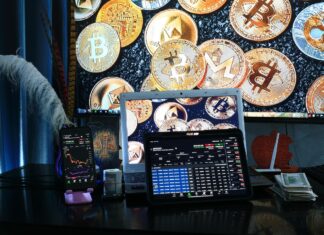Trending Now
Featured Bitcoin, Blockchain & Cryptocurrency News
SEC postpones altcoin ETFs
A number of altcoin ETFs are currently ineligible for approval. However, according to analysts, this is standard procedure.
The U.S. Securities and Exchange Commission (SEC)...
Bitcoin on the verge of a comeback? Expert sees parallels to 2017
After recent losses, Bitcoin recovered somewhat on Wednesday but was unable to initiate a sustained recovery. Uncertainty surrounding US trade tariffs and ongoing concerns...
US Strategic Bitcoin Reserve as an Important Signal for Investors – Why Experts Are...
US President Donald Trump has ordered the creation of a strategic reserve for digital currencies. The move was initially met with disappointment among crypto...
Ethereum ETFs with returns: Fidelity wants to allow staking
Fidelity wants to integrate staking into its Ethereum ETF. A potential game changer for institutional investors and the ETH price.
Cboe submitted a rule change...






















